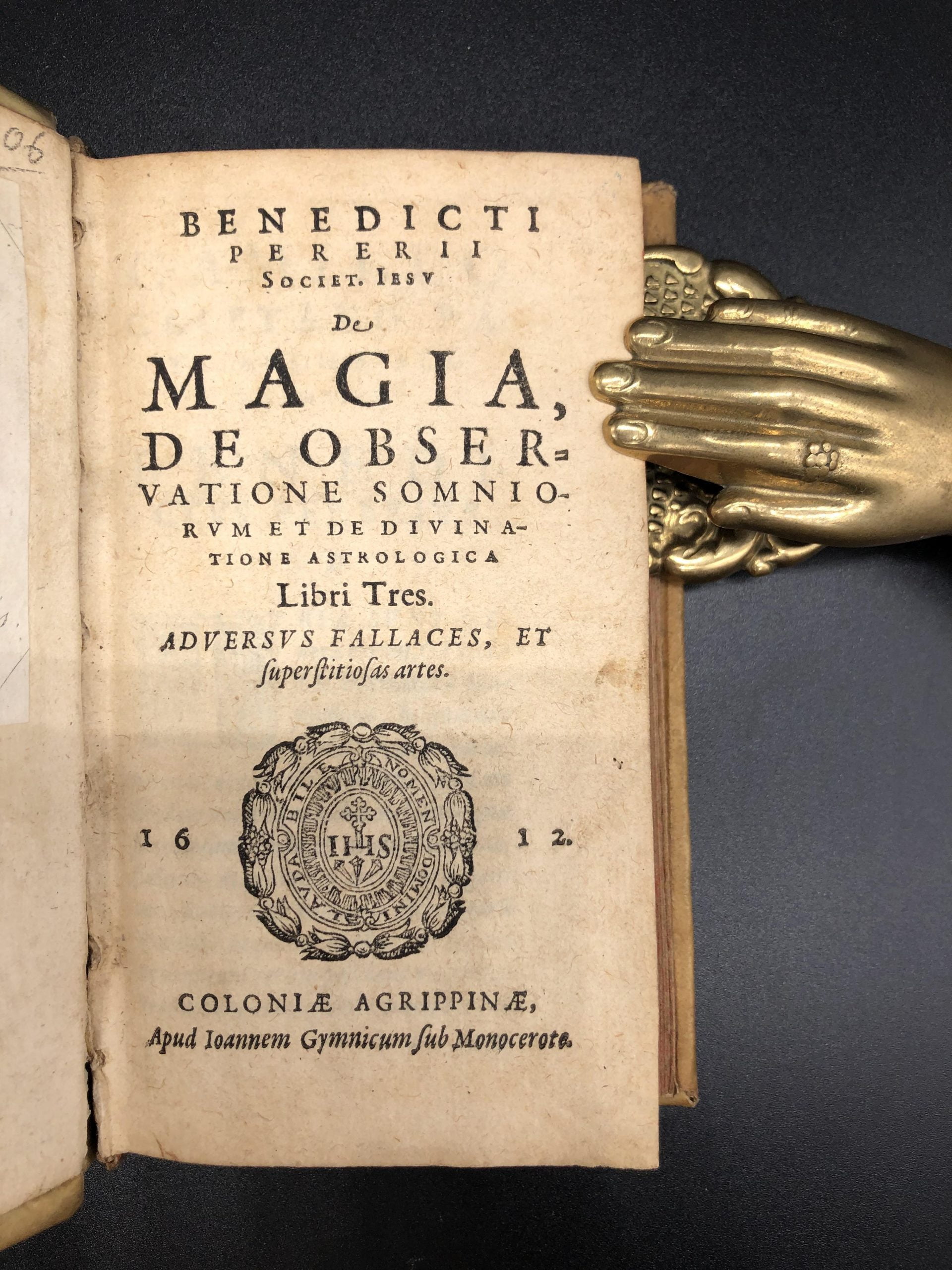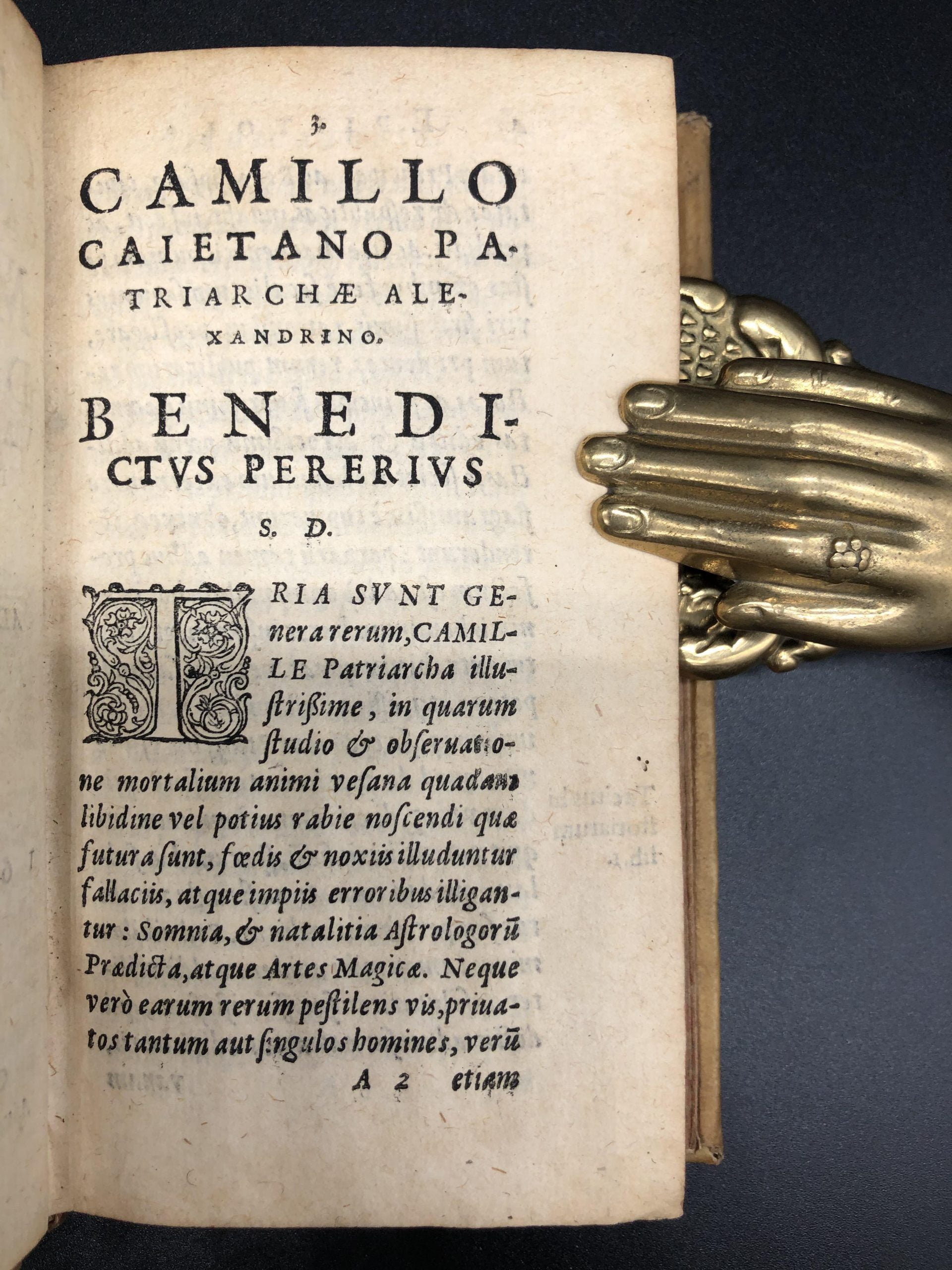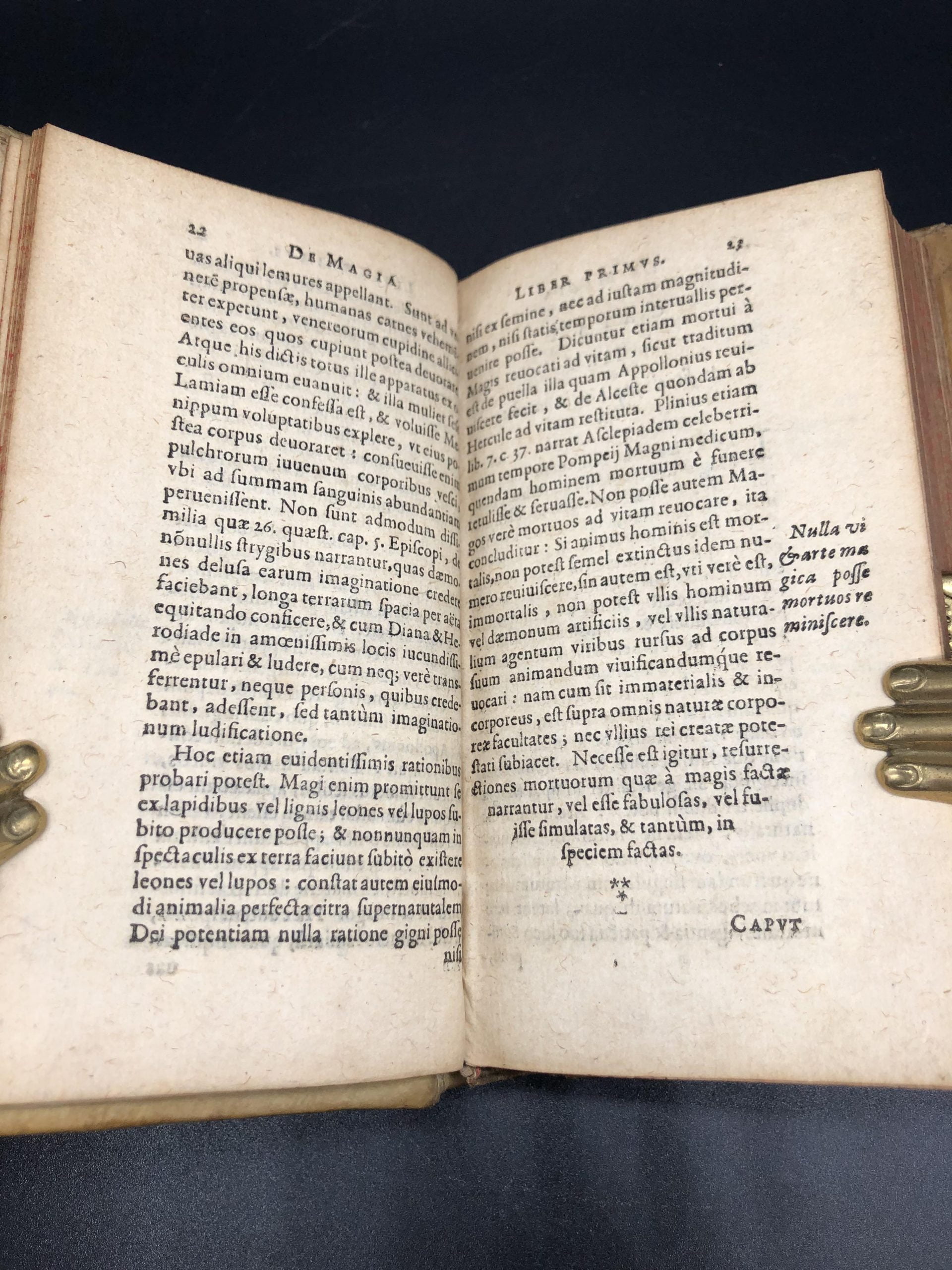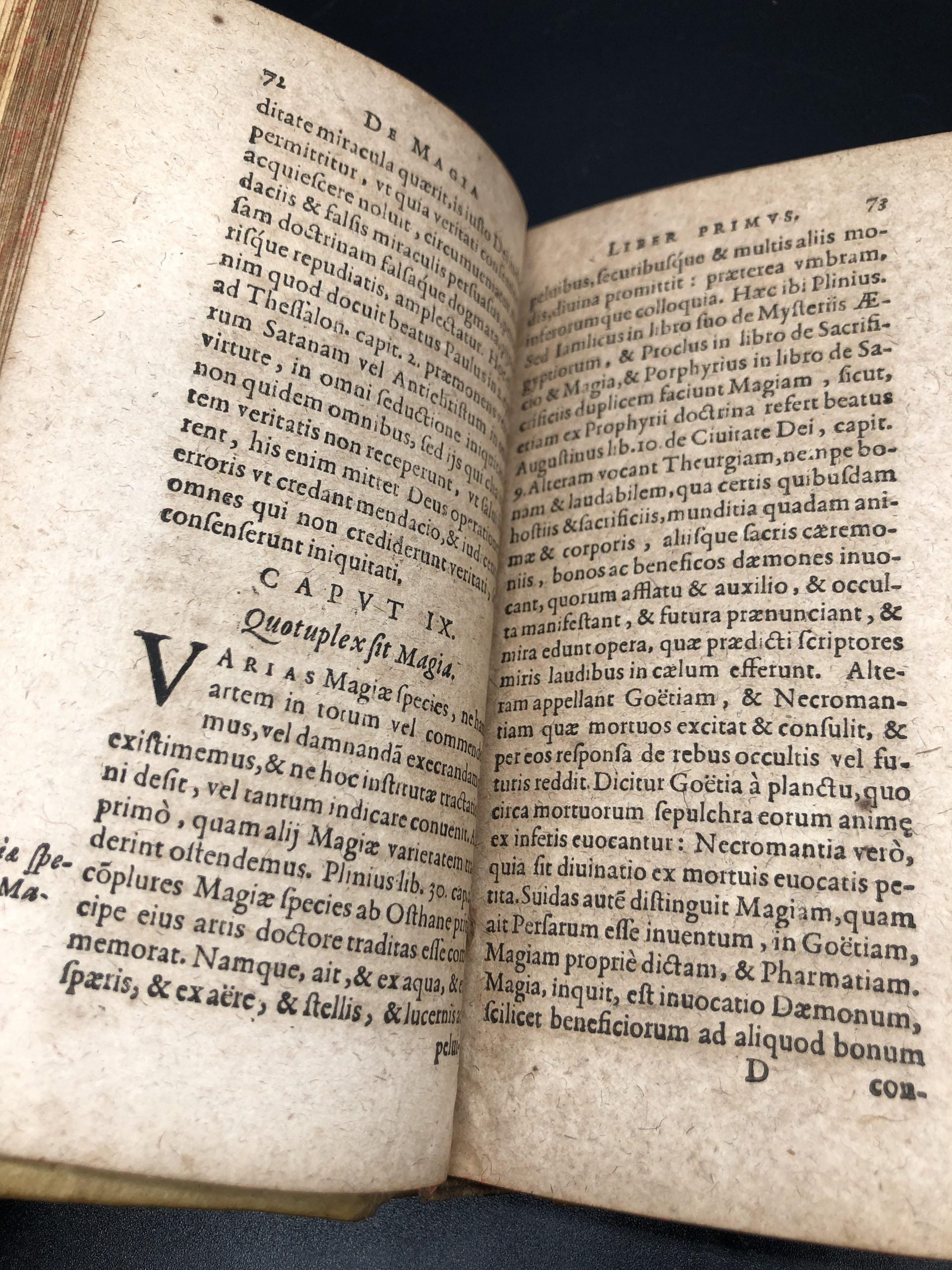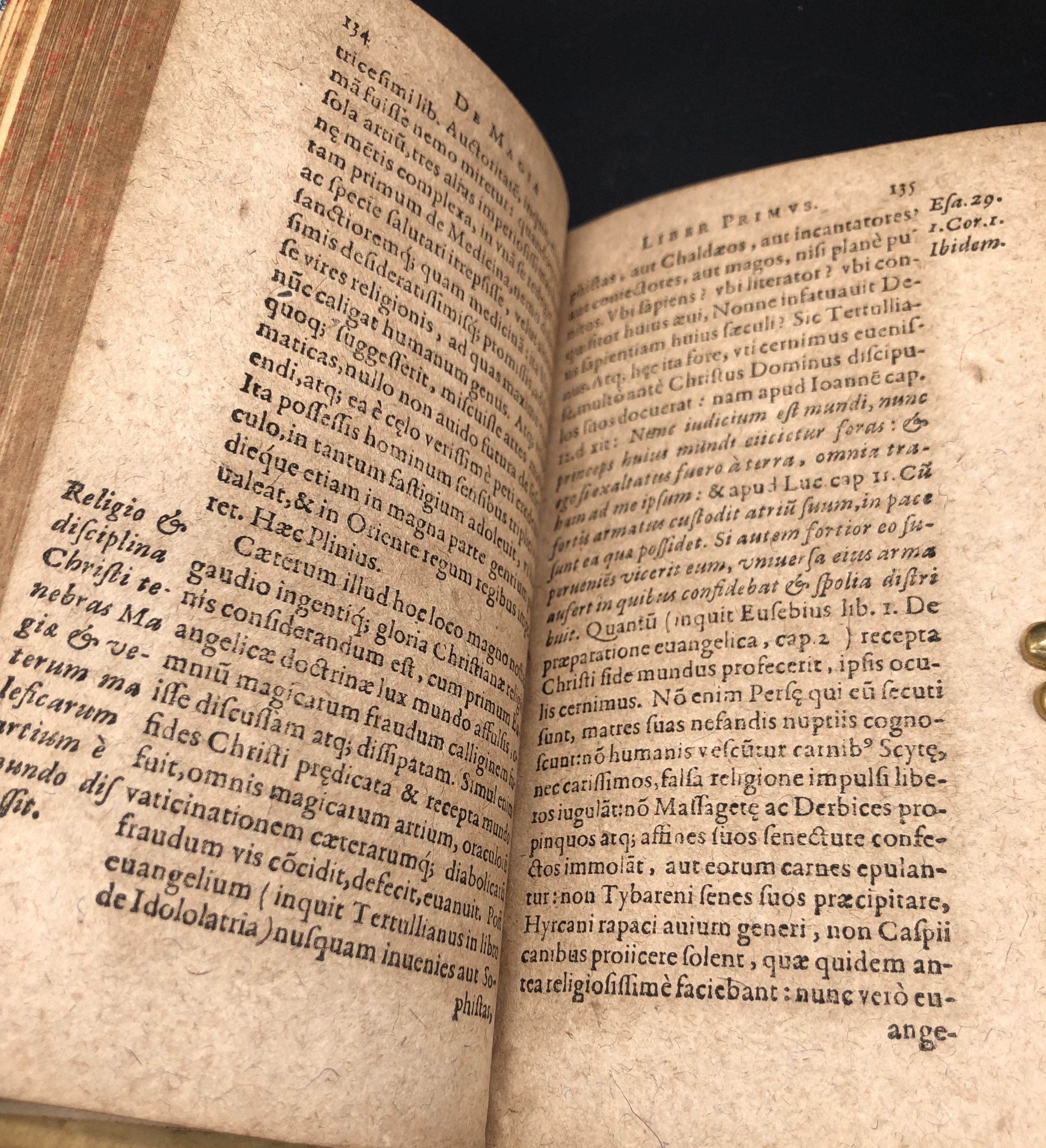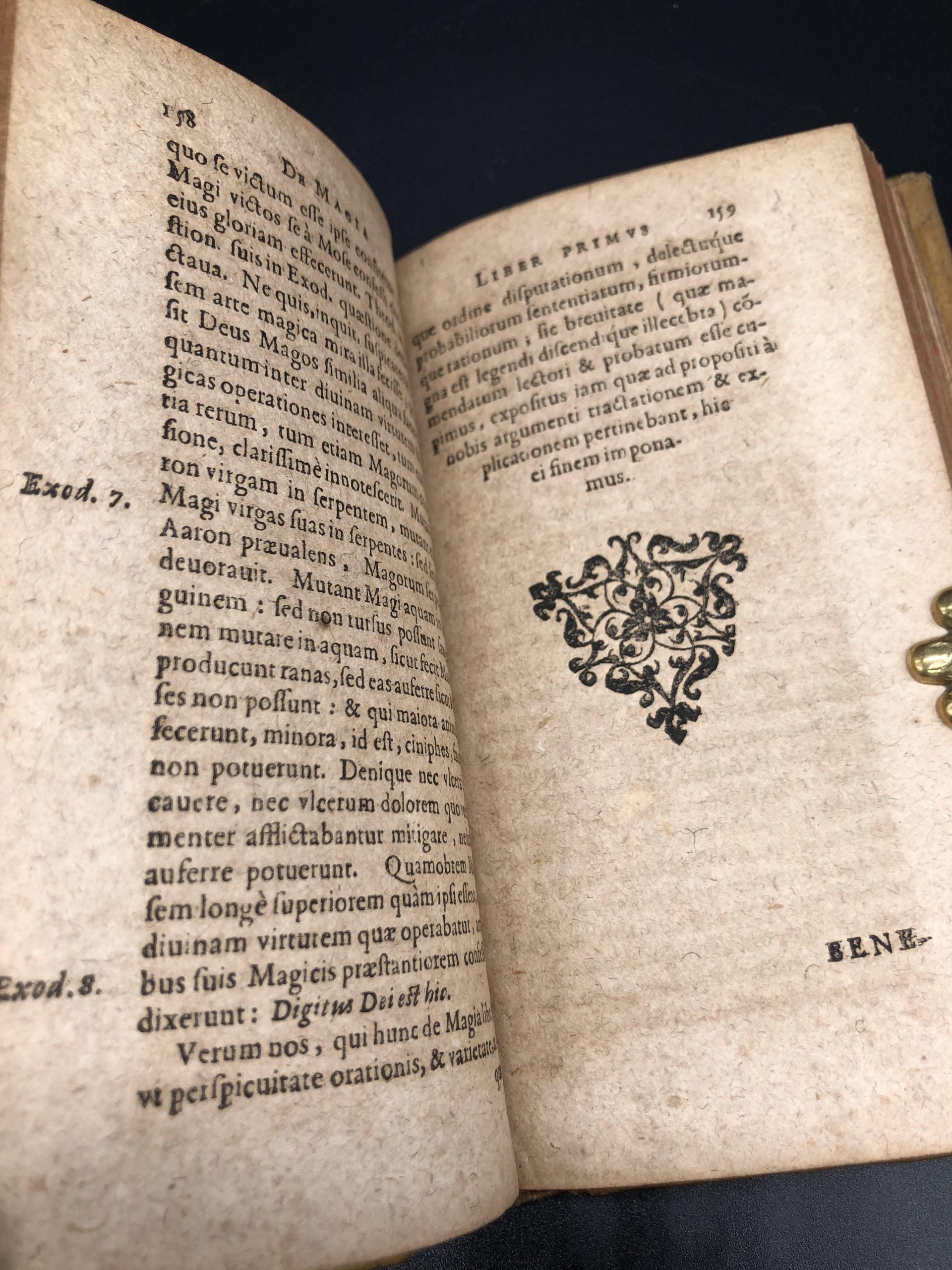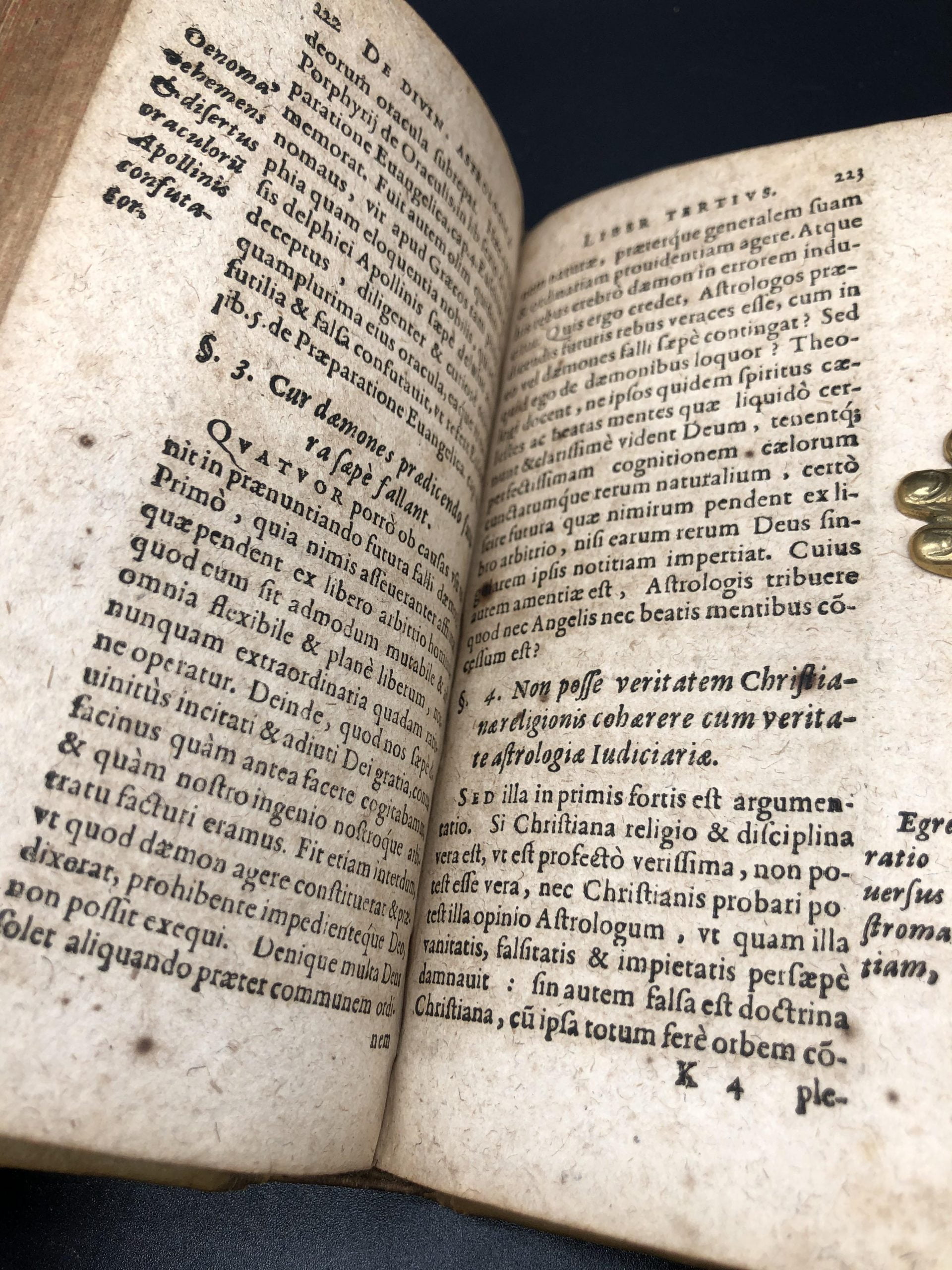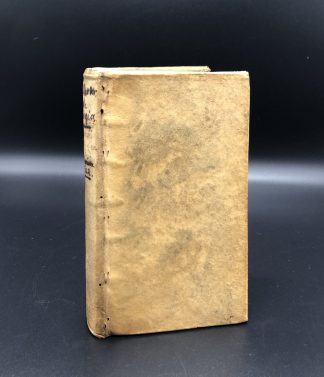PEREIRA, Benito
USED BY JUNG
De Magia, de observatione somniorum et de divinatione astrologica
Cologne, Johann Gymnich, 1612£3,250.00
12mo. pp. 324 (vi), lacking last two blanks as usual. Roman letter, little Italic. Woodcut IHS vignette to t-p, woodcut initials and ornaments. Varying degrees of browning, ink burn to B9 affecting two words. Contemporary vellum, title inked to spine, all edges sprinkled red. C19 armorial bookplates of L.A.G. du Plessis and Jules Édouard Potier de la Morandière.
Scarce edition of this fascinating and successful treatise on magic, dreams and divination, and superstition, first printed in 1591. Benito Pereyra, SJ (1530-1610) was a major Spanish theologian, philosopher and exegete, and an influential professor at the Collegium Romanum. Inspired by his lectures, his numerous works, on subjects including psychology and mathematics, played an important role in the formation of the principles of ‘Jesuit science’. His metaphysics and psychology in particular had ‘a significant impact on Protestant Germany and Holland’ (Lamanna, ‘Benet Perera’, 273). Based on ancient and modern sources, including Ficino, it groups together texts Pereyra had published as part of previous works: a chapter on alchemy from ‘De principiis’, and two on dreams and astrology from his commentaries to the ‘Book of Daniel’ and ‘Genesis’ (Bulm, ‘Benedictus’, 293). Pereyra begins the first book by distinguishing natural magic, based on the concealed and evident properties of things, from magic devoid of reason and truth, false and damaging, connected with demons, fraud and ‘maleficia’, a danger to society. He proceeds with a study of demonic powers, with the assistance of magicians, the nature of miracles, as well as astrology, the kabbalah, necromancy and alchemy, with a conclusion on the origins of magic. The famous psychologist C.G. Jung devoted a long footnote in his ‘Psychology and Religion’ to Pereyra’s ‘excellent tract’ about dreams, the second part of ‘De Magia’. Pereyra identifies four causes of dreams—bodily affections, emotional commotions of the mind, the power of demons, and true divine presence—considering the functions of reason and will. Inspired by Pico’s ‘Adversus astrologiam’, the third part, on judicial astrology and divination, includes chapters on the vanity of oracles, demonic prophecies, the impossible mediation between Christian and astrological truth, astrologers’ predictions (with mention of comets). For its attention to the powers and nature of demons, it has been considered ‘not only a treatise of witchcraft and magic, but also a manual of exorcism’ (Bib. Esot. 3605).
Louis Alexandre Adolphe Gitton Duplessis (1800-1888) was a French lawyer, politician and bibliophile, whose collection was purchased en bloc by the architect Jules Édouard Potier de la Morandière, after his death.
Newberry, Loyola and Cornell copies recorded in the US. Backer-Sommervogel, VI, col. 504, n.4; BL STC Ger. C17 P344; Bib. Esot. 3605: ‘très rare’. Not in Caillet, Duveen or Yve-Plessis. M. Lamanna, ‘Benet Perera’, in Jesuit Philosophy on the Eve of Modernity, ed. C. Casalini (Leiden, 2019), 270-92; P.R. Blum, ‘Benedictus Pererius: Renaissance Culture at the Origins of Jesuit Science’, Science & Education 15 (2006), 279-304.In stock





